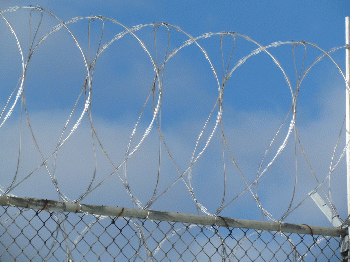From Truthout
n July 27, a federal district court judge in Alexandria, Virginia, sentenced former U.S. Air Force intelligence analyst Daniel Hale to 45 months in prison for revealing evidence of U.S. war crimes.
In 2015, Hale, whose job involved identifying targets for drone strikes, provided journalist Jeremy Scahill with secret military documents and slides that exposed shocking details about the U.S. drone program. Hale's revelations became the basis of "The Drone Papers," which was published on October 15, 2015, by The Intercept.
Although the government admitted it had no evidence that direct harm resulted from Hale's revelations, in 2019, the Trump administration charged Hale with four counts of violating the Espionage Act and one count of theft of government property. Facing up to 50 years in prison, Hale pled guilty to one count that carries a maximum sentence of 10 years
The leaked documents disclosed the "kill chain" the Obama administration used to determine whom to target. Countless civilians were killed using "signals intelligence" in undeclared war zones: Targeting decisions were made by following cell phones that might not be carried by suspected terrorists. The Drone Papers divulged that half of the intelligence used to identify potential targets in Yemen and Somalia was based on signals intelligence.
During one five-month period during January 2012 to February 2013, nearly 90 percent of those killed by drone strikes were not the intended target, according to The Drone Papers. But civilian bystanders were nonetheless classified as "enemies killed in action" unless proven otherwise.
Hale said, "It's stunning the number of instances when selectors [used to identify "terrorist" targets] are misattributed to certain people." Calling a missile fired at a target in a group of people a "leap of faith," he noted, "it's a phenomenal gamble." Hale added, "Anyone caught in the vicinity is guilty by association."
The Drone Papers reveal that reliance on drones actually undermines U.S. intelligence gathering. Drones terrorize communities, breeding resentment against Americans and making the United States more vulnerable to violence. Indeed, Hale wrote in his 11-page pre-sentencing letter, "the war had very little to do with preventing terror from coming into the United States and a lot more to do with protecting the profits of weapons manufacturers and so-called defense contractors."
Drone strikes shield U.S. military members from harm in order to minimize Americans' opposition to war. But drone operators who make or carry out remote targeting decisions nevertheless suffer from post-traumatic stress disorder (PTSD).
At his sentencing hearing, Hale told U.S. District Judge Liam O'Grady, "I believe that it is wrong to kill, but it is especially wrong to kill the defenseless." Hale said he revealed what "was necessary to dispel the lie that drone warfare keeps us safe, that our lives are worth more than theirs."
(Note: You can view every article as one long page if you sign up as an Advocate Member, or higher).






